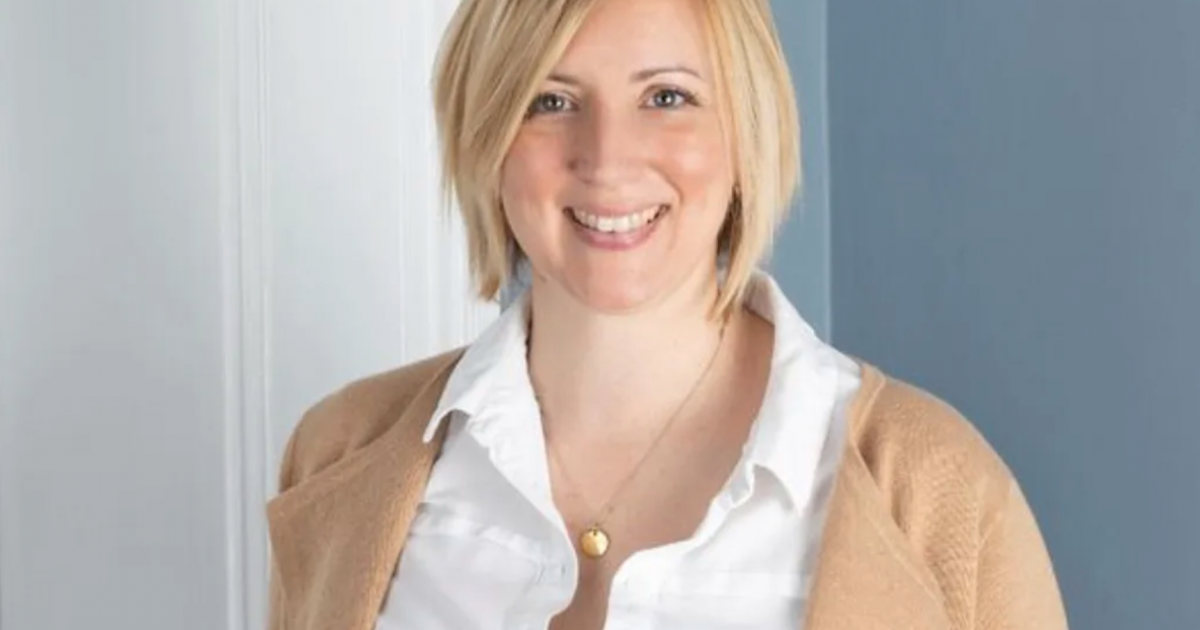A Mother's Brave Decision
- Psychologist Nova Cobban, 43, was surprised to find out she had a higher risk for developing cancer after undergoing genetic testing.
- The wife and mother was having stomach issues last year and decided to see what could be causing her discomfort. Initially worried about food allergies, she then discovered she had the BRCA2 gene mutation, which can be an early indicator of developing breast or ovarian cancer.
- Nova determined that she likely inherited the gene from her father’s side, which many people may not be aware of, and is planning to have preventative surgeries to protect her health.
- The BRCA mutation, which is passed on from a father or a mother, can cause a variety of cancers, including breast and ovarian cancer.
"The process was simple I sent off a mouth swab and three months later, in July 2021, the results arrived. But when I opened the app, I noticed the cancer section had a warning flag,” Nova said in an interview. “I wasn't especially worried it could have been anything so I flicked through.”
Read More Even though Nova is well-equipped to handle such information considering what she does for a living, she still said it was hard to take in.
Even though Nova is well-equipped to handle such information considering what she does for a living, she still said it was hard to take in.“I was aware of Angelina Jolie 's story but I didn't immediately equate this finding to needing preventative surgery like her,” she said. “Initially, I felt nonplussed not anxious.”
In 2013, Jolie bravely shared that she had had a preventative mastectomy and hysterectomy after finding out she carried the BRCA1 gene mutation, which put the mom-of-six at a higher risk of developing breast and ovarian cancer. Jolie’s decision was also largely due to losing her own mother Marcheline to ovarian cancer at age 56.
The famous “previvor” raised awareness about genetic testing and paved the way for women around the world to follow suit to protect their health.
While Jolie inherited her cancer risk from her mother, Nova determined that her risk was likely passed down from her father’s side.
"I knew Dad's mum had died quite young and was vaguely aware she'd had breast cancer," she explained of her family’s health history. "However, I'd had no idea the BRCA2 gene could be passed down the paternal line."
Nova began her research, and found that she could remove her breasts, ovaries and fallopian tubes. She had a talk with her husband, Mark, about how these surgeries could potentially affect their relationship, physically and emotionally. Although the choice was hers alone, she valued his thoughts on the decision, and luckily had his full support.
"He said, 'Look, we're married, we've got kids, the last thing we want is to lose you because you haven't done this. Of course I won't hate you. I'm not saying it's not going to be tricky but the alternative is that you could die.'"
What Are the Options if You Have a High Risk of Developing Breast Cancer?
Nova aims to remove her breasts by the end of this year, but is more concerned of her ovarian cancer risk and getting the ball rolling in that direction as well. Overall, she is handling her health situation with grace under pressure.
"Being a psychotherapist means I have the toolkit to cope with stress like this, and am used to dealing with patients going through similar situations, but I also want to show him this can be dealt with pragmatically."
More and more women are learning about the BRCA genes and preventative surgeries, but Nova especially wants people to know that this risk can also be inherited from their father’s side, which many are often surprised to find.
Learning More About BRCA Mutations
What is a BRCA mutation? BRCA (a breast cancer gene mutation) is actually two genes (BRCA1 and BRCA2), each proteins that work as tumor suppressors. They help repair damaged DNA, and are important for ensuring the stability of each cell's genetic material.
When either of these genes is altered, that mutation can mean that its protein product does not function properly, or that damaged DNA may not be repaired correctly. These inherited mutations in BRCA1 and BRCA2 can increase the risk of female breast and ovarian cancers, and have also been associated with increased risks for several other cancers.
Dr. Rebecca Arend, Associate Scientist at the University of Alabama, Birmingham, explains the mutation in terms of its ability to repair damaged DNA.
"What a BRCA mutation is, is a defect in your ability to repair a double-strand break (in your DNA),” Dr. Arend tells SurvivorNet. “The BRCA mutation, which is passed on from a father or a mother, can cause a variety of cancers, including fallopian tube and peritoneal cancer, which are ovarian cancers.”
Dr. Arend says that while roughly 1.3 percent of women in the general population will develop ovarian cancer sometime during their lives, it is estimated that about 44 percent of women who inherit a harmful BRCA1 mutation, and about 17 percent of women who inherit a harmful BRCA2 mutation, will develop ovarian cancer.
Genetic Testing and Ovarian Cancer
Specific mutations in BRCA genes lead to an increased risk of developing breast cancer. People who have a family history of breast or ovarian cancer may want to consider being tested for mutations, particularly if the relative was diagnosed with cancer before age 50. If you've been diagnosed with a BRCA mutation, there are still steps you can take to lower your risk of developing a cancer.
"When I meet with women who are at an increased risk for breast cancer because of BRCA mutations, I like to talk about the three options that they have for managing their risk," says Dr. Freya Schnabel, Director of Breast Surgery at NYU Langone Medical Center. Those options are:
- Intensive surveillance: This means keeping an eye on your health, in an attempt to catch disease early if it does present itself.
- Medication: There are certain drugs available to lower the risk of developing breast cancer. But as with any medical treatment, risks and benefits must be considered.
- Surgery: This is the option that will lower a woman's chance of getting breast cancer as much as possible. It involves removing as much breast tissue as possible, while attempting to preserve the nipple area, should a woman opt for reconstruction.
Learn more about SurvivorNet's rigorous medical review process.


